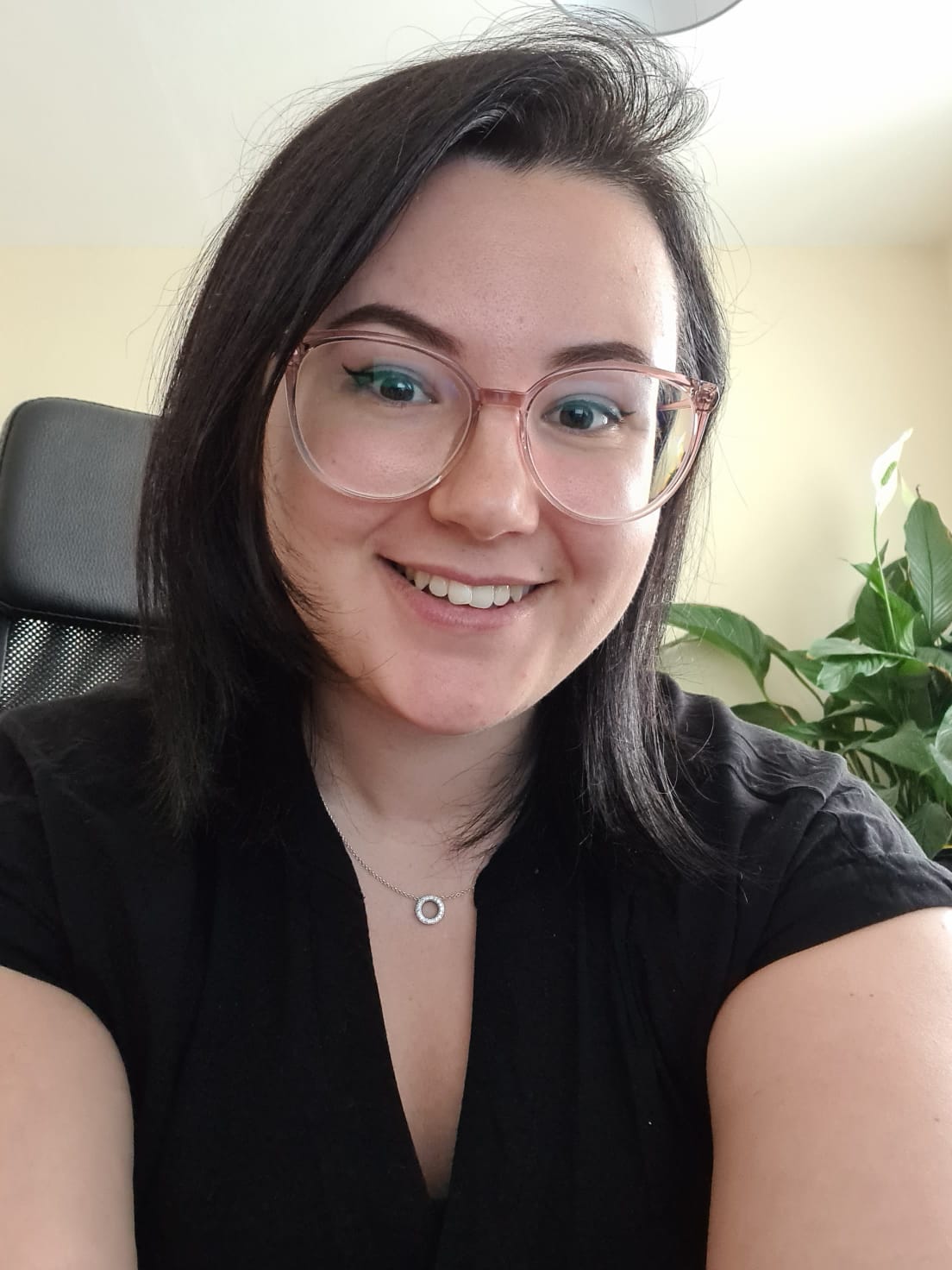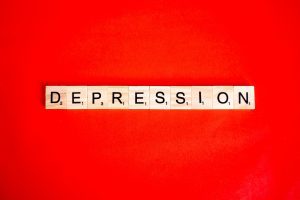Why I am speaking up about ADHD
Fairly recently I was diagnosed with Attention Deficit Hyperactivity Disorder (or ADHD as it is more commonly known). I recognise that every individual who has ADHD experiences it in their own unique way. So, by no means am I trying to say “this is what it means to have ADHD” within this article.
But I also recognise that ADHD has a lot of stigma attached to it. And as I have a platform, I can do something to try and help increase understanding and reduce that stigma. I hope that by detailing my experience, anyone who has ADHD or suspects they might will find reassurance in the message that they are not alone.
I also wanted to talk a bit more about my experience so that those who are considering counselling and would like to get to know a bit about me first, can do so. My focus is always on my clients during our sessions together, as it is their time to focus on themselves.
But I know that sometimes, people find comfort in knowing that their counsellor also faces challenges. It breaks down the façade of a “perfect” life, and helps clients feel more of an equal in the counselling room.
How I decided to approach talking about my experience
I have a friend who happens to be a researcher. So, we arranged an informal hour-long interview to discuss my experiences. What follows is a summary of that interview. Even though it is a summary, it is still quite long, so you might want to use a read aloud function, or read it in small segments.
The interview
Interviewer
I’m going to ask you a few questions to try and help those reading this interview understand your journey with ADHD so far.
To start with, I would like to know what happened (or what you became aware of), which first made you consider the possibility that you might have ADHD?
Sophie
Over the last few years of my education, I noticed that I would often be behind others. This became most apparent to me when I was at university. I found that I was struggling to find the motivation to do my assignments more than others and I felt as though I was always being unproductive. I honestly believed that this was just because I was “lazy”.
By the time I was doing my master’s degree I felt like I was barely getting through it. I had started to wonder if there was something more to my struggle than it just being a personality fault. But this wondering didn’t stop me being highly self-critical, I was still blaming myself a lot.
Once I left university, I happened to have some clients with ADHD and found that I related strongly to the symptoms they were describing. I didn’t want to dismiss what my clients were going through as “normal”, (or neurotypical), because the impact of their experiences were significant. I also did some additional training about ADHD and recognised a large number of the symptoms in myself.
Interviewer
You say you recognised a lot of the symptoms of ADHD in yourself. Which of the typical symptoms of ADHD in particular struck a chord with you?
Sophie
Most of all, I think it was that I really struggle to focus, even when I want to. It’s almost as if there are barriers in the way, stopping me from being able to concentrate.
I struggle a lot to sit still. Whilst I won’t be getting up and out of my chair a lot (which is something many people with ADHD will do) I can’t stop fidgeting when I am sat down.
I also feel an intense need to speak over people in conversations and have my say – which is obviously not great for a counsellor! I have to work hard not to do this. Sometimes though I take it too far. In the counselling room it is a good thing to be listening much more than talking. But I can “close down” in social situations too. I don’t want people to think bad of me for talking too much, so I end up saying very little.
I also think I can be really unproductive because I procrastinate so much, and I am easily distracted. I know that everyone procrastinates or gets distracted sometimes, but whilst a lot of people can get distracted temporarily and then get back on task, it takes me much longer.
Even tiny things can distract me, I can find myself staring at a blinking light on my computer for minutes on end, or being hyper aware of an uncomfortable sensation (like my toes being cold).
It feels like my brain must focus on distractions, I can’t think about anything else. And if there is an action to be taken (like going to get some socks for my feet), then I have to do this before I can contemplate concentrating again.
I didn’t realise that the extent of my distractibility wasn’t neurotypical until I started looking into it more. I thought most people were this way, but they were just better at handling it.
I beat myself up about all the things I was experiencing. But they all fall under the banner of a problem with “executive functioning” which is fundamental to ADHD. Executive function is a set of mental skills which covers things like starting a task, knowing when to speak and having control over your focus. Realising these experiences were symptoms and that they were all connected was an important step for me.
Interviewer
It sounds like once you started to learn more about it, you discovered you related to a lot of the symptoms of ADHD, but were there any symptoms of ADHD which you felt you couldn’t relate to?
Sophie
Yeah a couple. Some of the hyperactive traits I either don’t experience or I have learnt to suppress.
It is a common stereotype that a child with ADHD will get up out of their seat unexpectedly when they are in a classroom. As an adult, if they had a desk job, this same person would likely be away from their desk a lot. That isn’t really a problem for me, I am not very active! But like I said, when I am sat down, I will be fidgeting like crazy.
Interrupting people is another common sign of ADHD, but it is one I work really hard on. When someone else is talking my mind will be racing, I have to try very hard to keep focused on what is being said and not to interrupt.
Because I have become so good at suppressing my need to interject in the counselling room, a number of people have told me I mustn’t have ADHD. They believe it would be impossible for me to listen to my clients.
But they don’t understand. Having ADHD means focusing on listening can almost be painful for me when I am disinterested. But when I am interested, I can hyper-focus, and fortunately I find my job very interesting!
When people dismiss and diminish my experience it is really hurtful. Not only are they saying that they must know me better than I know myself, but their dismissal is damaging for my self-esteem. It feels like they are effectively saying “there is nothing wrong with you, you are just lazy”, which is the message I try so hard not to say to myself.
Interviewer
It sounds like it would be really hard to tell anyone about your ADHD if they can cause that much harm.
Earlier you mentioned that your diagnosis was almost a validation of what you were experiencing. Now that you have had time to sit with that diagnosis, how does it make you feel to say “yes, I have ADHD”?
Sophie
It’s a mixed bag of emotions and it can change every day. Often, I will feel upset because I don’t experience the world in the same way as other people. It also makes me sad that I didn’t get help and support earlier in life.
But then other times I feel empowered. For so long I have not felt “normal” because I wasn’t able to do the things I believed I was “supposed” to do. Like at school, I would try and revise for 3 hours straight in the run up to exams, but I could never do it. I found that “cramming” the night before was the only way I could revise, which I was repeatedly told was wrong.
I now understand the way my brain works much better. I know that there is no point in me trying to force myself to concentrate on something that is uninteresting for long periods of time unless it is really urgent. I was trying to fit in with how the world expected me to function so that I would be normal, but I always felt disappointed with the end result when I did.
I now feel much more content with what I produce, because I got there in my own way, and it results in a better output. I consider my outputs to be “normal” now, which makes me much happier. I am being productive and successful by not forcing myself to follow the normal way of getting there.
Interviewer
So, you knew in yourself that you had ADHD before you got diagnosed because of all the symptoms you were experiencing. How did you come to the decision to try and get diagnosed?
Sophie
At first, I just self-diagnosed and I was convinced I had ADHD so much that I did question if I needed a diagnosis. But I realised I needed confirmation that I had ADHD and that what I was experiencing was beyond my control. It was really important to me to challenge the negative messages I was giving myself about being lazy, and to do that I would need definitive confirmation.
Before I got my diagnosis, I would punish myself mentally on a daily basis. I would feel as though it didn’t matter how much I planned or how well I planned, I wouldn’t end up achieving the output I wanted. I knew how long tasks should take and it always felt doable, but then I would end up not achieving my goals.
I wasn’t producing enough, and I blamed myself for that. I was really harsh on myself back then, and it just became really tiring. This constant self-criticism had a big impact on my ability to function as well. If you are feeling as if you are worthless, you are less likely to find the motivation to do anything.
I know I still have a long way to go to change my self-perception. But at least now I can see myself eventually getting to self-acceptance, whereas before I couldn’t.
As well as the personal reasons, there were practical reasons behind my decision to get a diagnosis. When you have a diagnosis there is so much more support available to you such as ADHD coaching and medication. I know a lot of people with ADHD choose not to take medication, but I wanted the option to be able to, it’s just my personal preference.
Interviewer
Is there anything about the process you went through to get a diagnosis which you would like others who may be considering it to know?
Sophie
Yeah definitely!
I want them to know that the route to diagnosis can be really bumpy. Your typical NHS route for a diagnosis can have a waiting list of up to 4 years.
But, there is a much quicker option. The “NHS right to choose” means that once you have a letter from your GP referring you to another (approved) service, you can go through that service instead to get your diagnosis.
Personally, I used Psychiatry UK which does have wait times of about a year right now, but when I accessed the service the waiting list was about 3 or 4 months.
Because the waiting lists are so long, I advise getting the referral you need from your GP as soon as possible. I wasted a lot of time because I was afraid, but with waiting lists as long as they are, even if you get a referral, you still have plenty of time to change your mind.
Interviewer
What was it that was making you afraid to get a referral?
Sophie
I was afraid of what it would mean about me if I went for a diagnosis and was told that I didn’t have ADHD. I know it can happen, even when people have most of the symptoms, and I knew it would affect my mental health if I was declined a diagnosis.
But ultimately, I knew I needed to find out. Even if it doesn’t turn out to be ADHD, I would still tell people to “cross the bridge when you come to it”. The fact you are going for a diagnosis means you probably need support of some kind, and starting the process can be a first step to getting that support.
I was also nervous about what being diagnosed would mean for me. ADHD carries a stigma, and it is a lifelong condition with no “cure”. Many people who don’t understand ADHD only think of the stereotype – a “naughty” child who is acting up and has parents with poor parenting skills.
This stereotype is so wrong. Not only does it blame the person with ADHD or their parents for the condition, but it also ignores the fact that a lot of ADHD children are not seen as naughty at school. I was very well behaved and almost a teacher’s pet if anything. No one noticed I had ADHD because I wasn’t disruptive, I just had a hard time concentrating and learning in a classroom.
Because of this stereotype I was concerned about what other people would think of me when I told them I have ADHD. What would employers, family members and friends think? Would it affect my relationships with them?
I also worried about the practicalities of being diagnosed. Because ADHD affects your ability to concentrate, I had questions such as “would I have to tell the DVLA” and “would I have my driver’s licence taken away from me”. I know some people can also be concerned that they may lose their job if their job involves working with machinery.
But the thing is, if you have been driving or working safely so far, then it is very unlikely your ability to do those things would be taken away from you. If anyone is concerned about it, I would recommend they speak to their psychiatrist when they go for their diagnosis, or even speak to their GP about it before the referral is sent.
Interviewer
There is some good advice there. I’m wondering how your lifestyle has changed since you discovered you have ADHD.
Sophie
That’s a big question. There is so much that has changed.
I am not taking any medication yet, so I am not exactly “getting better”. But I have made quite a lot of self-directed changes which are helping me feel more on top of things and more positive about myself.
I have learnt how to organise myself in a way that works for me, it helps me manage my workload and time. I found that having an ordinary diary or planner just didn’t work, I would forget things and have to confirm appointments a lot which made me feel unprofessional.
But now I make sure I plan everything in my diary, so anything I need to do for work, any social commitments, and even little reminders like “call mum” go in my diary.
I also used to schedule big blocks of time for certain tasks, so I would expect myself to concentrate on something for 2 – 4 hours (which never happened)! Now I only schedule a 2-hour block of “work time” as a maximum, with a break in between that block of time and another.
I also don’t put pressure on myself to concentrate the entire time, because I know it is an unrealistic goal. Instead, I set myself several short and realistic goals to complete within the time window. If I get them done and still have time, that’s great, I can move on to something else. But if I get distracted and don’t end up with extra time, then that’s OK too.
Another strategy I am finding works well is to use an app that splits the day into visual chunks of time. I have “time blindness”, which means I lose track of time, all the time. Having a visual aid makes it clear how long I have left on a task and helps stop time from disappearing without me noticing whilst I’m distracted.
So basically, I am micromanaging my days, but in a way that gives me more flexibility rather than less.

Interviewer
Have you tried any tips or techniques that you found online for ADHD which just didn’t work for you?
Sophie
Yes, I read this tip which said that if you are putting off doing something you really need to do, then you should put yourself in the vicinity of where you would do the task. For example, if you really needed to wash the dishes, you should put yourself in the kitchen. The idea is that you will think “well, if I’m just stood here not doing anything, I may as well do the washing up”.
But that didn’t work for me at all. I just found myself stood in my kitchen, getting distracted by waiting for the motivation to come!
Interviewer
*laughs*, I can see why that didn’t work for you!
How do you think knowing that you have ADHD will affect the path you decide to follow in life, if at all?
Sophie
I think the whole experience has made me realise I need to listen to my own mind more. So, I won’t force myself to do anything that is not going to work out well for me.
Like when it comes to exercise, I can never find the motivation to go for a run because I get bored and distracted. But if I go for a walk with my dogs then I am not alone, they keep me engaged in what I am doing, and so I am much more likely to exercise that way.

Another way that listening to myself more has impacted me is in the work I choose to do. In the past I have had jobs I found boring, and it was hard to keep on task. This would make me feel depressed, and I would always be looking for the next opportunity. But I don’t feel that need to change jobs anymore. I have work which interests me and (as a result), I am much better at it and want to keep doing it.
Although it isn’t related to ADHD specifically, I have started to be more true to myself overall. I realise now that I was forcing myself to live life very differently to how I would naturally for so long as I was trying to fit in.
This would not only mean I would behave in ways which were unhelpful to seem normal, but I would also push myself to be friends with people who don’t really understand me very well. Now, I am living life the way that makes sense for me. I am living a more authentic life.
Interviewer
Thank you for that, it certainly sounds like there has been a big positive shift in your perspective as a result of recognising your ADHD.
Is there anything else you would like to say to someone reading this who has ADHD or thinks they may have it?
Sophie
Yeah, number one, trust your instincts, if you think something isn’t right, get it checked out. It can be scary, but the support is out there.
Two, if you have ADHD or suspect you might, then you likely have other things going on with your mental health. Although getting a diagnosis can help shift your perspective, you should consider seeking additional support as well.
And thirdly be really kind to yourself. You are behaving the way you do for a reason. Whether that reason is ADHD or not, you don’t deserve to beat yourself up.
My closing thoughts
ADHD and neurodivergence are two topics very close to my heart. If like me you struggle to concentrate, but you made it through this interview, then thank you! It means a lot that you would take the time to read it.
I never assume my experiences are the same as anyone else’s, but sometimes it can help to speak to someone who understands what you are going through, even just a little. If you would like to speak to me about counselling for ADHD you can get in touch with me by email at: sophie@sbcounselling.co.uk . Or by phone on: 07588 117305.
Thank you.







